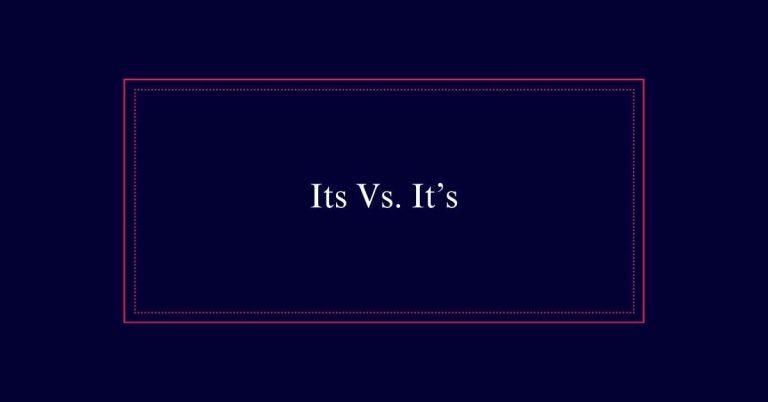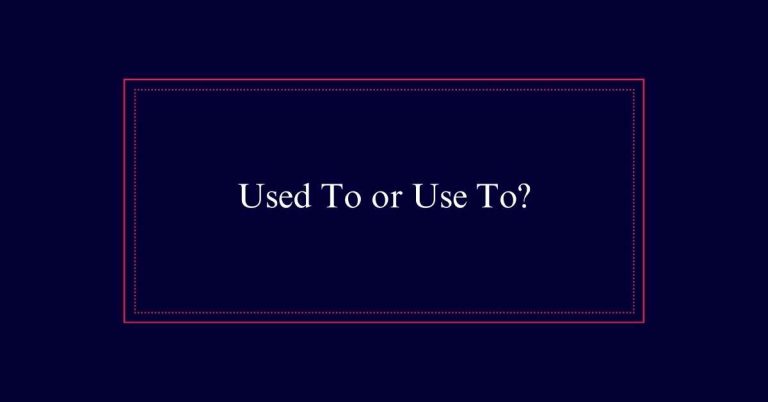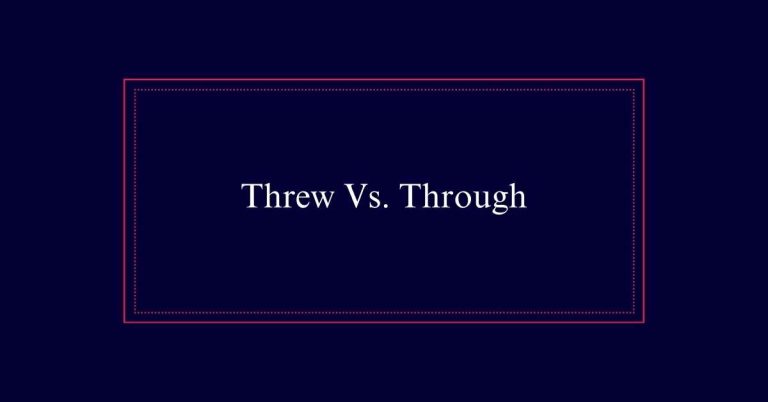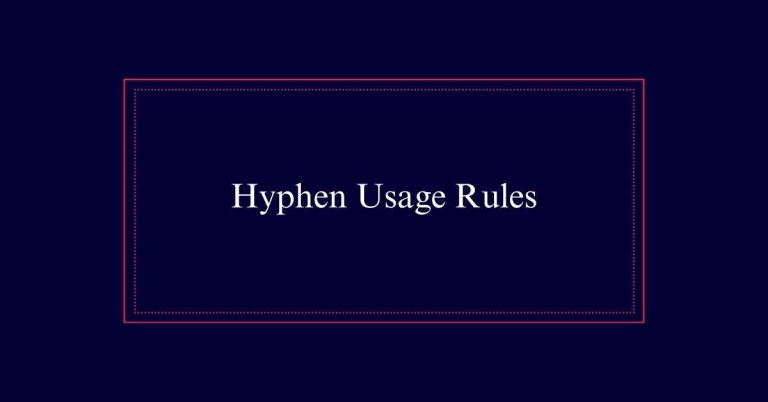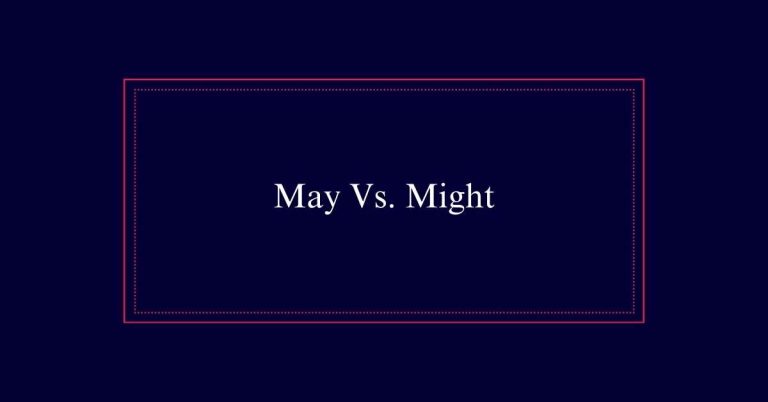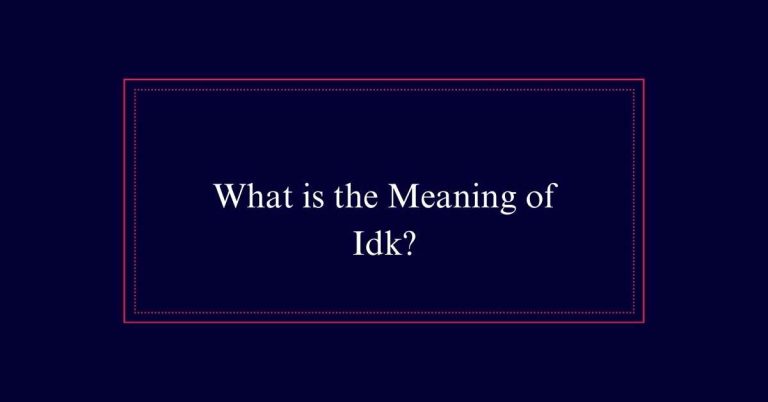Until, Till, or ’Til
The words ‘until’ and ’till’ are both correct and can be used interchangeably. ‘Until’ is more formal and often preferred in professional writing, while ’till’ is equally correct but slightly less formal. ‘Till’ is an older word, with roots in Old English and Old Norse. The term ”til’ is a common but incorrect abbreviation. Using ’till’ instead of ”til’ guarantees clarity and professionalism in writing.
Till Vs. Til
The word ’till’ is often mistakenly thought to be an abbreviation of ‘until,’ but it is a distinct and older word. Despite this, many writers incorrectly use ’til’ as an abbreviation, which is considered an error.
According to Merriam-Webster, ’till’ serves both as a noun, referring to a cash register, and as a verb, meaning to prepare land for crops. The use of ’til’ is not recognized as standard English and should be avoided.
Origins of ‘Till’
Dating back to Old English, ’till’ has been a part of the English language for centuries. Its origins can be traced to the Old Norse word ’til,’ which means ‘to.’ Over time, ’till’ evolved in English to carry the same meaning as ‘until.’
- Consistency in Usage: ‘Till’ has been consistently used since its introduction, maintaining its role in the language.
- Literary Presence: Classic literature often features ’till,’ demonstrating its longstanding acceptance.
- Misconceptions: Despite common belief, ’till’ is not a shortened form of ‘until’ but a legitimate, standalone word.
Definitions by Merriam-Webster
Merriam-Webster defines ’till’ as both a noun referring to a cash register and a verb meaning to prepare land for growing crops. This highlights the word’s versatility in different contexts.
The dictionary also notes that ’till’ is an established term in the English language and not a contraction of ‘until’.
Despite common misconceptions, ’till’ has a rich history and stands on its own. It can be used interchangeably with ‘until’ to indicate time or duration. For instance, both ‘wait till morning’ and ‘wait until morning’ are correct.
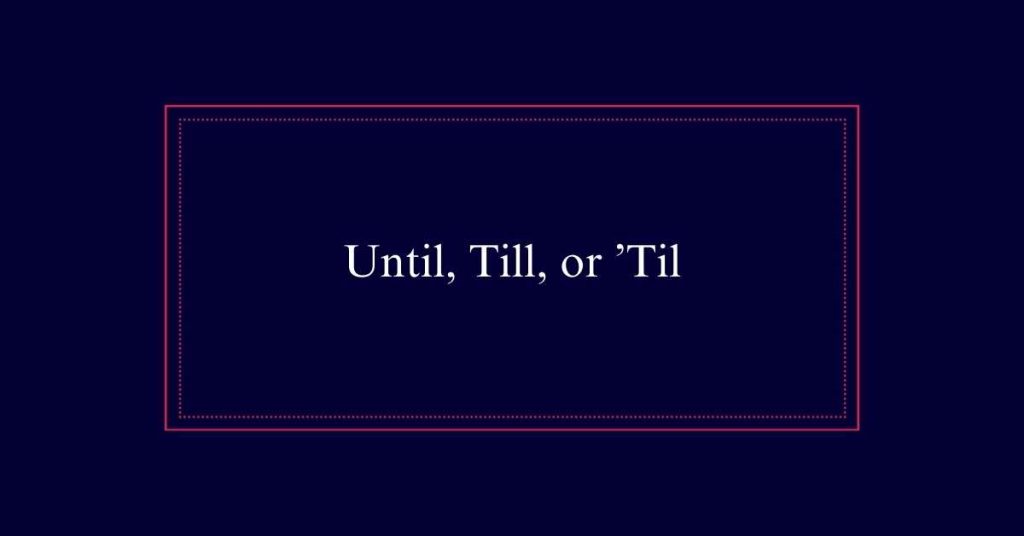
Until Vs. Till
Although both ‘until’ and ’till’ indicate duration or time, they differ slightly in formality and historical usage. ‘Till’ is the older term, dating back to Old English, while ‘until’ emerged later.
Both words are correct and can be used interchangeably in most contexts. However, ‘until’ is often perceived as slightly more formal than ’till’. This subtle difference can influence word choice depending on the context and desired tone.
- ‘Till’ is often used in informal writing and speech.
- ‘Until’ is preferred in formal writing but is also acceptable in casual contexts.
Despite common misconceptions, ’till’ is not a shortened form of ‘until’.
Formality of ‘Until’
The term ‘until’ is often favored in formal writing due to its perceived sophistication. It conveys a sense of precision and clarity that is well-suited for professional and academic contexts. While ’till’ is equally correct, ‘until’ tends to be the preferred choice in formal documents, reports, and communications. This preference arises from its slightly more polished and refined appearance.
| Term | Context |
|---|---|
| Until | Formal writing |
| Till | Informal usage |
| Until | Professional emails |
| Till | Casual texts |
| Until | Academic papers |
Proper Uses of ‘Until’
Proper use of ‘until’ guarantees clarity and precision in both formal and informal writing. ‘Until’ serves as a versatile term to indicate the duration up to a specific point in time. It is suitable for various contexts, ensuring your message is clear and understood.
Here are some guidelines:
- Use ‘until’ to specify a time limit: ‘The meeting is scheduled until 3 PM.’
- Apply ‘until’ to show continuation: ‘She will stay in the city until she finds a job.’
- Employ ‘until’ in conditional sentences: ‘You won’t pass the exam until you study hard.’
Proper Uses of ‘Till’
Using ’till’ correctly in writing guarantees clarity and maintains a professional tone.
‘Till’ is often misunderstood as a shortened form of ‘until,’ but it is a distinct word with the same meaning. Both ’till’ and ‘until’ can indicate duration or time.
While ‘until’ is slightly more formal, ’till’ is perfectly acceptable in both formal and informal writing. For example, one might write, ‘The store is open till 9 PM,’ or ‘You can stay till the event ends.’
Common Usage Examples
Incorporating ‘until’ and ’till’ correctly in sentences enhances clarity and professionalism in writing. Here are a few common usage examples to illustrate their proper use:
- ‘We will wait until the results are announced.’
- ‘The store is open till 9 PM tonight.’
- ‘I studied until midnight for the final exam.’
Both ‘until’ and ’till’ indicate the duration of time, and their correct usage can make your writing more precise.
While ‘until’ is slightly more formal, ’till’ is equally correct and can be used in most contexts.
Misconceptions About ‘Till’
A common misconception is that ’till’ is a shortened form of ‘until,’ but they are, in fact, distinct words. ‘Till’ is an older term that has been in use for centuries. It is not an abbreviation.
Both ’till’ and ‘until’ mean the same thing and can often be used interchangeably. Another misconception is that ’till’ is less formal than ‘until.’ This is not true; ’till’ is perfectly acceptable in formal writing.
Some writers mistakenly use ’til’ as an abbreviation for ‘until,’ but this is considered incorrect. ‘Til’ is simply a common error.
Grammar Tips and Tricks
Mastering the correct usage of ’till,’ ‘until,’ and ’til’ enhances the clarity and professionalism of your writing. These words often confuse writers, but understanding their distinctions is essential.
‘Until’ is always appropriate, regardless of formality. ‘Till’ is equally correct but slightly less formal, though both words are interchangeable. Avoid using ’til’ as it is widely considered incorrect.
Here are some grammar tips to help you:
- Use ‘until’ in formal contexts: ‘The meeting will last until 5 PM.’
- ‘Till’ is an older term but equally valid: ‘Wait till the bus arrives.’
- Avoid ’til’ to maintain professionalism: ‘Incorrect: Stay ’til the end.’

